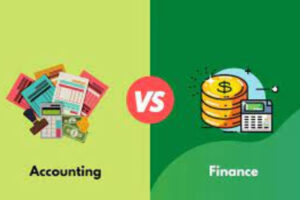Introduction
In the world of accounting and finance, individuals often wonder whether obtaining a degree is a prerequisite for success in these fields. While it’s true that formal education can provide a solid foundation, it is not the sole determining factor for securing employment or excelling in accounting or finance. In this article, we will explore the question, “Do I need a degree to work in accounting or finance?” and shed light on the various paths that individuals can take to thrive in these industries.
The Value of a Degree in Accounting or Finance
Understanding the Traditional Approach
Historically, earning a degree in accounting or finance has been viewed as a traditional and reliable route to enter these professions. A formal education can equip individuals with fundamental knowledge and skills necessary to navigate the complex world of numbers, financial statements, and economic concepts. Moreover, many employers tend to prioritize candidates with degrees when initially screening applicants.
Alternative Paths to Success
While a degree can undoubtedly be advantageous, it is essential to recognize that it is not the only path to success in accounting or finance. The rise of alternative options, such as certifications, vocational training, and relevant work experience, has broadened the possibilities for aspiring professionals.
Professional Certifications
Obtaining industry-recognized certifications, such as the Certified Public Accountant (CPA), Certified Management Accountant (CMA), or Chartered Financial Analyst (CFA), can serve as a testament to one’s expertise and commitment in the field. These certifications often require rigorous exams and demonstrate a deep understanding of specific areas within accounting or finance. They can enhance job prospects and open doors to lucrative opportunities.
Vocational Training and Specialized Programs
Some individuals may choose to pursue vocational training or enroll in specialized programs that offer focused education on practical aspects of accounting or finance. These options provide hands-on experience, real-world case studies, and industry connections, allowing aspiring professionals to acquire relevant skills efficiently.
Relevant Work Experience
Gaining practical experience through internships, apprenticeships, or entry-level positions can be an excellent way to break into the accounting or finance industry. Employers often value hands-on experience and the ability to apply theoretical knowledge to real-world scenarios. By actively engaging in work settings, individuals can build a strong foundation and demonstrate their capabilities to potential employers.
Factors Beyond Formal Education
It is crucial to acknowledge that success in accounting or finance is influenced by various factors beyond formal education. While a degree or certification can open doors, other attributes play a significant role in career advancement.
Strong Analytical and Critical Thinking Skills
Accounting and finance professionals are expected to analyze financial data, identify trends, and make informed decisions based on their findings. Possessing strong analytical and critical thinking skills is essential in these fields. The ability to interpret complex information, solve problems, and provide strategic recommendations can significantly contribute to professional success.
Continuous Learning and Adaptability
The accounting and finance landscapes are constantly evolving due to technological advancements, regulatory changes, and shifting market dynamics. Professionals must embrace continuous learning and stay updated with industry trends and best practices. Being adaptable and open to acquiring new skills and knowledge can make individuals stand out and excel in their careers.
Effective Communication and Collaboration
Accounting and finance professionals often interact with various stakeholders, including colleagues, clients, and executives. Effective communication skills, both written and verbal, are essential for conveying complex financial information in a clear and concise manner. Additionally, the ability to collaborate and work well within teams fosters a productive and efficient work environment.
Conclusion
While a degree in accounting or finance can provide a strong foundation and increase job prospects, it is not the sole determining factor for success in these industries. Alternative paths, such as certifications, vocational training, and relevant work experience can also lead to thriving careers in accounting or finance. Professional certifications demonstrate expertise and commitment, while vocational training and specialized programs offer practical knowledge and industry connections. Gaining relevant work experience through internships or entry-level positions allows individuals to apply theoretical knowledge in real-world scenarios.








